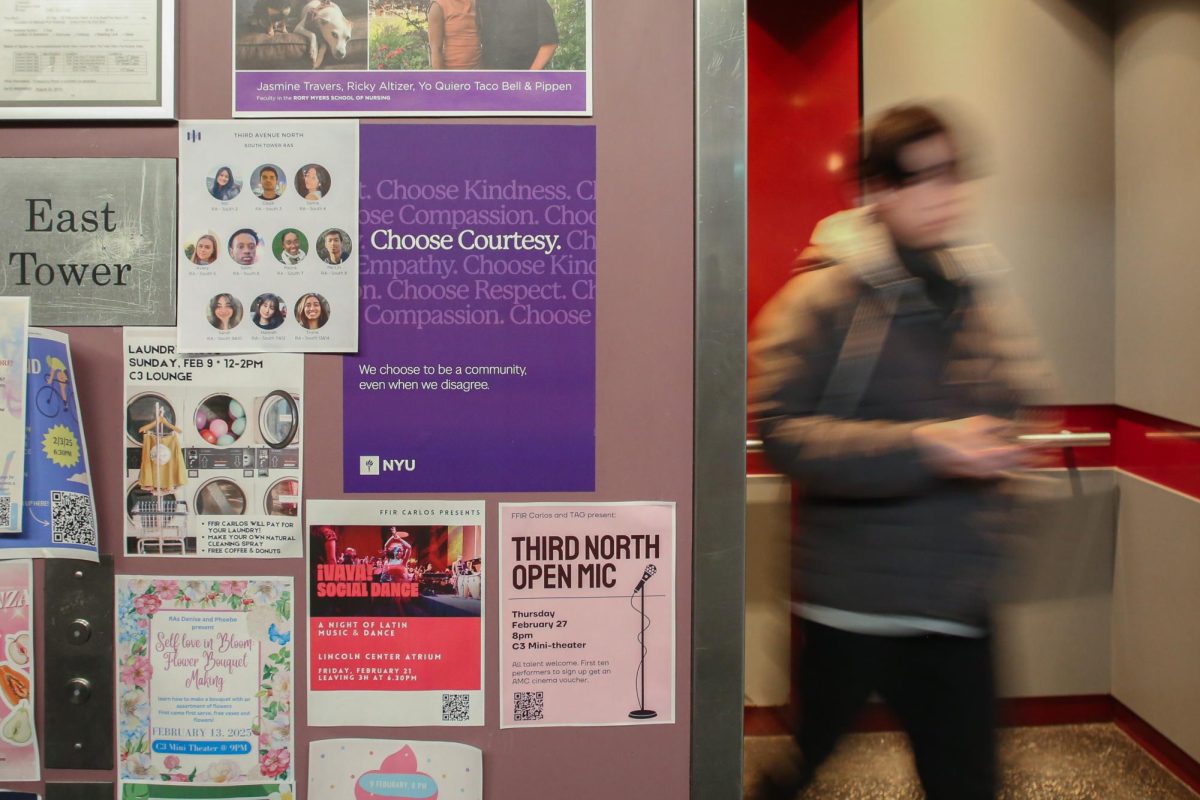After an exhausting night watching President Donald Trump, a candidate I strongly opposed, win back the White House, I walked into my first lecture the next morning with a heavy heart. As I sat down, something atypical happened to me: A Black girl who usually sits next to me moved across the room. When another classmate questioned her decision to switch seats, she replied, “I just can’t deal with a white boy today.” “I get that,” the other girl said, nodding her head approvingly.
In an instant, I became a scapegoat because of my gender and skin color. I was hit with a complex mix of emotions, confused as to why she assumed I supported Trump. I was frustrated that I couldn’t defend myself without making a scene and hurt because I felt personally attacked. At the same time, I understand their frustration and acknowledge my privilege. This election, I didn’t have to worry about losing reproductive rights or loved ones being deported. The classmate who moved away from me likely felt legitimate fear for her future that morning. However, these reactions did nothing except stifle conversation and isolate us from one another without good cause. This moment could’ve been an opportunity for consolation or, if our views differed, a chance to learn from one another. Yet instead, I left feeling silenced.
And this was not an isolated incident. This comment, along with similar ones I’ve received connecting my appearance to Trump’s victory, was not made due to the ignorance of a few small-minded people. Rather, it reflects a greater problem: a lack of constructive political dialogue at NYU and an intolerance toward those with different viewpoints. In WSN’s post-election “Staff Rants,” the editor-in-chief asserted, “The Democrats have severely underestimated the power of the insecure white man.” Once, I was jokingly told in another class, “You look like you would be a crazy Trump supporter.” At times, I felt like yelling, “I am an ally! I agree with you!” However, this immediate stereotyping made me unable to engage, even with those who do share my political beliefs.
I knew that this wasn’t simply something I felt. It allowed me to reflect on the collective challenge that students of different backgrounds may face when it comes to feeling unheard on campus. This suppression often takes subtle forms, such as a professor expressing support for a liberal viewpoint without acknowledging any conservative perspectives or a student casually sharing their dislike of Republicans, oblivious to the presence of their Republican peers.
“Professors, students, administrators and donors alike should all be concerned about the lack of diversity of expressed thought on campus,” said Grant Callahan, the secretary of the NYU College Republicans. “It’s not that students with these views don’t exist on campus, but rather, our campus operates as if these students don’t exist. Simply put, their views are wrong — therefore, they should not be engaged [with] openly and honestly. As a consequence, students fear being judged and ostracized by their peers and being unfairly targeted by their professors.”
Callahan’s perspective aligns with a survey from The Foundation of Individual Rights and Expression, which ranks NYU as the third-worst university for free speech. This is not an issue unique to NYU, but part of a broader problem affecting college campuses nationwide. A 2021 study found that 52% of college students “always” or “often” withhold from expressing their political beliefs in the classroom due to the risk of consequences, such as losing out on professional opportunities, being excluded from social events and even physical assault. Perhaps even more troubling, a recent survey found that more than half Jewish and Muslim students and a fifth of all students in college fear for their safety due to their stance on the war in Gaza.
What happens when political intolerance gets out of hand? This question was answered at DePaul University last November, when two Jewish students that “‘visibly’ showed support for Israel” were physically assaulted by their classmates, who were later charged with a hate crime. At the University of Mississippi, a member of a fraternity intentionally blocked the path of pro-Palestinian protests, mocking Black students with monkey noises and racial slurs. Despite their differing viewpoints, both of these instances exemplify victims experiencing the detrimental effects of intolerance. This is a complicated issue in which tensions rise quickly, but we must all look in the mirror and reflect on the way we speak and act towards those we disagree with.
NYU has multiple programs designed to bridge the gap between those with differing viewpoints. One of these is NYU In Dialogue, a program “designed to grow our capacity to listen” and “value different perspectives,” providing occasional discussion-based events featuring people with opposing viewpoints. But these events are poorly advertised and are seldom attended by NYU students, with faculty making up most of the attendance.
Universities nationwide, including NYU, have created a climate that silences those holding minority opinions and stifles conversations between opposing view-holders — causing people to fear expressing their beliefs. Professors and students alike must recognize their role in building a more inclusive community. Faculty members must acknowledge their respect for opposing viewpoints, making it clear those they disagree with are no less intelligent. As students, we must have conversations with people we disagree with and confront the reality that ideological purity is not possible. Social shunning of conservatives and others with differing perspectives only prevents productive dialogue, preventing mutual respect and understanding. We all deserve to feel safe expressing ourselves, no matter our political stance or skin color. If we don’t make serious changes now to create a campus where respectful dialogue is the norm rather than the exception, our divisions will only worsen.
WSN’s Opinion section strives to publish ideas worth discussing. The views presented in the Opinion section are solely the views of the writer.
Contact Jake Christy at [email protected].

























































































































































